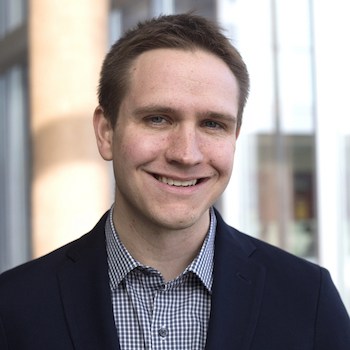
Benjamin Jorns Receives Department of Energy Early Career Research Award
Jorns awarded 5 years of funding for advanced plasma research

Jorns awarded 5 years of funding for advanced plasma research
U-M Aerospace Engineering professor Benjamin Jorns is the recipient of a 2022 Department of Energy Early Career Research Award. His research on “Understanding the Spatiotemporal Spectra of Transport-Inducing Instabilities in Low Temperature Plasmas” will be supported by the Fusion Energy Sciences portfolio for the next five years.

Jorns is one of 83 scientists chosen for this year’s awards who were selected from a large pool of university- and national laboratory-based applicants. Awards were selected by a peer review of outside scientific experts.
Jorns’ research focuses on electric propulsion systems, advanced plasma diagnostics, breakthrough forms of space propulsion, data-driven modeling, and basic plasma physics phenomena including turbulence and nonlinear processes. He was recently promoted to Associate Professor with Tenure and is the Co-Director of the Plasmadynamics & Electric Propulsion Laboratory.
“I am very honored and grateful to the DOE for this opportunity, and I am very excited about the research. We have proposed to combine probabilistic inference methods with advance probing techniques to derive new experimental insight into the instabilities that exist in a wide range of low temperature plasma devices. My hope is that this work will lead not only to a new fundamental understanding of the plasma state but also will result in improvements in key technologies like electric thrusters and plasma material processors.”
Anthony Waas, Richard A. Auhll Department Chair says, “Ben is one of the faculty that represent the future of aerospace engineering. His dedication to research and teaching, coupled with his passion for the work inspire those around him. We’re thrilled for him to receive this award.”
Jorns joined U-M in 2017 after working as a technologist in the electric propulsion group at the Jet Propulsion Laboratory. He earned his Master’s and Ph.D. at Princeton University.